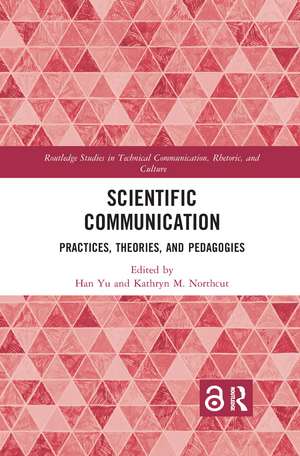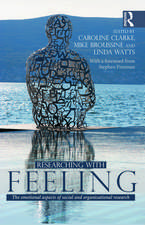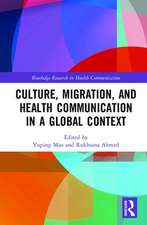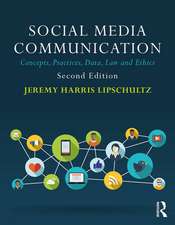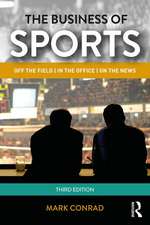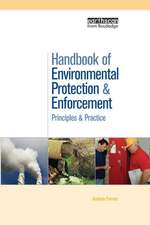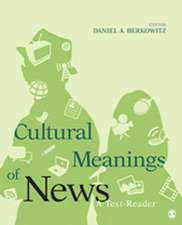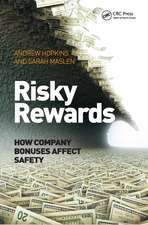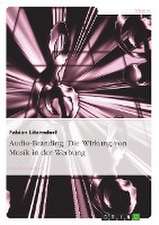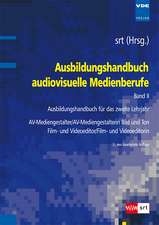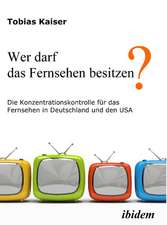Scientific Communication: Practices, Theories, and Pedagogies: Routledge Studies in Technical Communication, Rhetoric, and Culture
Editat de Han Yu, Kathryn M. Northcuten Limba Engleză Paperback – 30 sep 2020
| Toate formatele și edițiile | Preț | Express |
|---|---|---|
| Paperback (1) | 389.66 lei 6-8 săpt. | |
| Taylor & Francis – 30 sep 2020 | 389.66 lei 6-8 săpt. | |
| Hardback (1) | 850.17 lei 6-8 săpt. | |
| Taylor & Francis – 25 sep 2017 | 850.17 lei 6-8 săpt. |
Preț: 389.66 lei
Nou
Puncte Express: 584
Preț estimativ în valută:
74.57€ • 77.65$ • 63.02£
74.57€ • 77.65$ • 63.02£
Carte tipărită la comandă
Livrare economică 07-21 martie
Preluare comenzi: 021 569.72.76
Specificații
ISBN-13: 9780367889333
ISBN-10: 0367889331
Pagini: 332
Dimensiuni: 152 x 229 x 18 mm
Greutate: 0.45 kg
Ediția:1
Editura: Taylor & Francis
Colecția Routledge
Seria Routledge Studies in Technical Communication, Rhetoric, and Culture
Locul publicării:Oxford, United Kingdom
ISBN-10: 0367889331
Pagini: 332
Dimensiuni: 152 x 229 x 18 mm
Greutate: 0.45 kg
Ediția:1
Editura: Taylor & Francis
Colecția Routledge
Seria Routledge Studies in Technical Communication, Rhetoric, and Culture
Locul publicării:Oxford, United Kingdom
Public țintă
Postgraduate and UndergraduateCuprins
Part I: Practice and Theory
1. Shifting Networks of Science: Citizen Science and Scientific Genre Change
Gwendoline Reid
2. Lines and Fields of Ethical Force in Scientific Authorship: The Legitimacy and Power of the Office of Research Integrity
Steven B. Katz and C. Claiborne Linvill
3. Science vs. Science Commercialization: Conflicts and Ethics of Information Sharing
Scott A. Mogull
4. Visualizing Science: Using Grounded Theory to Critically Evaluate Data Visualizations
Candice A. Welhausen
5. The Tree of Life in Popular Science: Assumptions, Accuracy, and Accessibility
Han Yu
6. Tweeting the Anthropocene: #400ppm as Networked Event
Lauren E. Cagle and Denise Tillery
7. From Questions of Fact to Questions of Policy and Beyond: Science Museum Communication and the Possibilities of a Rhetorical Education
Gregory Schneider-Bateman
Part II: Pedagogy and Curriculum
8. Science and Writing: A Transectional Account of Pedagogical Species
Jonathan Buehl and William FitzGerald
9. Confronting the Objectivity Paradigm: A Rhetorical Approach to Teaching Science Communication
Maria E. Gigante
10. Dissolving the Divide between Expert and Public: Improving the Science Communication Service Course
Kate Maddalena and Colleen A. Reilly
11. A Rhetorical Approach to Scientific Communication Pedagogy in Face-to-Face and Digital Contexts
Carleigh Davis and Erin A. Frost
12. MetaFeedback: A Model for Teaching Instructor Response to Student Writing in the Sciences
Lindsey Harding and Liz Studer
13. Incorporating Wikipedia in the Classroom to Improve Science Learning and Communication
Becky J. Carmichael and Metha M. Klock
1. Shifting Networks of Science: Citizen Science and Scientific Genre Change
Gwendoline Reid
2. Lines and Fields of Ethical Force in Scientific Authorship: The Legitimacy and Power of the Office of Research Integrity
Steven B. Katz and C. Claiborne Linvill
3. Science vs. Science Commercialization: Conflicts and Ethics of Information Sharing
Scott A. Mogull
4. Visualizing Science: Using Grounded Theory to Critically Evaluate Data Visualizations
Candice A. Welhausen
5. The Tree of Life in Popular Science: Assumptions, Accuracy, and Accessibility
Han Yu
6. Tweeting the Anthropocene: #400ppm as Networked Event
Lauren E. Cagle and Denise Tillery
7. From Questions of Fact to Questions of Policy and Beyond: Science Museum Communication and the Possibilities of a Rhetorical Education
Gregory Schneider-Bateman
Part II: Pedagogy and Curriculum
8. Science and Writing: A Transectional Account of Pedagogical Species
Jonathan Buehl and William FitzGerald
9. Confronting the Objectivity Paradigm: A Rhetorical Approach to Teaching Science Communication
Maria E. Gigante
10. Dissolving the Divide between Expert and Public: Improving the Science Communication Service Course
Kate Maddalena and Colleen A. Reilly
11. A Rhetorical Approach to Scientific Communication Pedagogy in Face-to-Face and Digital Contexts
Carleigh Davis and Erin A. Frost
12. MetaFeedback: A Model for Teaching Instructor Response to Student Writing in the Sciences
Lindsey Harding and Liz Studer
13. Incorporating Wikipedia in the Classroom to Improve Science Learning and Communication
Becky J. Carmichael and Metha M. Klock
Notă biografică
Han Yu is Professor of Technical Communication in the English Department, Kansas State University, USA. She is co-editor (with Gerald Savage) of Negotiating Cultural Encounters: Narrating Intercultural Engineering and Technical Communication, author of The Other Kind of Funnies: Comics in Technical Communication, and author of Communicating Genetics: Visualizations and Representations (forthcoming).
Kathryn Northcut is a professor of technical communication in the Department of English and Technical Communication at Missouri S&T, USA. She teaches courses in technical communication at the undergraduate and graduate levels. She co-edited (with Eva Brumberger) Designing Texts: Teaching Visual Communication.
Kathryn Northcut is a professor of technical communication in the Department of English and Technical Communication at Missouri S&T, USA. She teaches courses in technical communication at the undergraduate and graduate levels. She co-edited (with Eva Brumberger) Designing Texts: Teaching Visual Communication.
Recenzii
"Yu and Northcut have blazed a new, important, timely, and practicable trail in the field of science communication." --Paul Dombrowski, University of Central Florida
"For faculty (and grad students) who want to initiate courses in science writing, or for those who want to enrich their approaches, Yu and Northcut’s new work has much to offer. The volume offers the best current thinking to support the teaching of science writing." --Stephen A. Bernhardt, University of Delaware, Emeritus
"For faculty (and grad students) who want to initiate courses in science writing, or for those who want to enrich their approaches, Yu and Northcut’s new work has much to offer. The volume offers the best current thinking to support the teaching of science writing." --Stephen A. Bernhardt, University of Delaware, Emeritus
Descriere
This book addresses the roles and challenges of people who communicate science, who work with scientists, and who teach STEM majors how to write.
